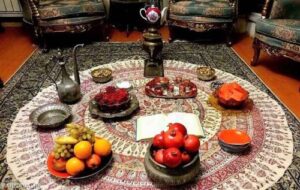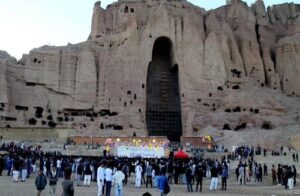KABUL/ NEW DELHI (SW): It was in 1892 when legendary Indian author Rabindranath Tagore depicted an Afghan “Kabuliwala” in one of his epic short stories that is still seen as a binding force between the two nations over a century onwards.
Afghans have been visiting India for ages due to various reasons but the 19th Century character of a "Kabuliwala" has given a rather charismatic and romantic identity to the Afghans who have carved a second home in Kolkata, West Bengal.
Inspired by the story written by Tagore, Moska Najib and Nazes Afroz, two journalist-photographers, embarked on a project to visit the “Kabuliwalas” of modern-era in West Bengal. Their collection has been displayed first in Kabul from March 18 till April 1 then in New Delhi, Dhaka and finally in Kolakata 16-29 May 2015.
Tagore’s Kabuliwala has taken a life of its own with translations in many Indian and foreign languages as well as cinematographic adaptations and theatrical performances. It’s a story about a tall and hefty dry fruit-seller in Kolkata who leaves behind his little daughter in the hilly hinterland of Afghanistan.
Abdur Rehman Khan, the “Kabuliwala” in Tagore’s short story befriends a small Bengali girl called Mini the daughter of Tagore who reminds him of his own daughter Amina back in Afghanistan.
Nazes, an Indian journalist, said on the launch of exhibition in Kabul that the series will connect viewers to the themes of human bonding as narrated by Tagore and will also touch on the issues of loss of identity and a new sense of belonging. “Viewers will experience the tension between preserving an identity and rebuilding a home in a new space”, the photojournalist noted.
He said 21st century Kabuliwala in Kolkata were too different to the one Tagore portrayed in his epic story. Back then, the Kabuliwalas were strangers with distinct features who came and started living in Kolkata, nobody knew them well and they themselves were not very familiar with their new inhabitant, he said, adding that now many of them have married Indian girls, enjoy eating Bengali food and their traditional “Attan” dance on important occasions with full liberty and joy.
“To my surprise, most of them hail from Afghanistan’s south eastern Paktika and Paktia provinces, many of them have not seen their capital Kabul yet they are called Kabuliwalas in line with the whole region north west of India before the partition of Sub-continent and the ultimate formation of India, Pakistan and Bangladesh in mid 20th century.
Muska, the Afghan partner of Nazes in this project is the daughter of slain Afghan President Najeebullah Ahmadzai. She was not present on the launch of the exhibition. “For the majority of my life while growing up in India, Tagore’s story has been a point of reference and cross-connection in many conversations about Afghans and the historical connection between the two countries,” she said in her written thoughts about the project.
The Afghan President Muhammad Ashraf Ghani, during his trip to India was full of praise for Tagore. “Rabindranath Tagore’s famous short story “Kabuliwala” has contributed more to brand Afghanistan which it could not do with billions of dollars” he said while fondly remembering the late Nobel laureate.
“I am delighted that the old version is being watched and a new version is being prepared that will give you a much more authentic sitting inside Afghanistan” Ghani said while speaking at a joint briefing along with the Indian Prime Minister Narendra Modi at Hyderabad House.
ENDS





